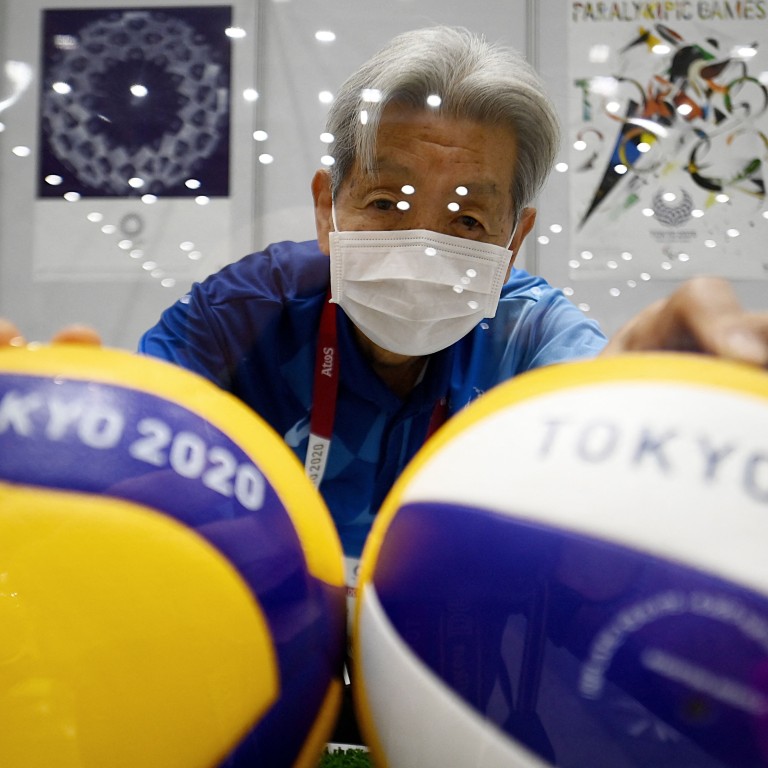
Tokyo Olympics: 10,000 volunteers hit the hurdles of Covid-19, chaos and not much to do
- Around one in 10 of the 110,000 people who had signed up as volunteers for the Tokyo Olympics are thought to have thrown in the towel
- Coronavirus fears put off many, while some ran in to organisational problems. For others there is a mental barrier: boredom
Keen sailor Ikuko Nagano had hoped to escort tourists to Fujisawa for the regattas; expat teacher Jordan Michels had wanted an Olympic volunteering pin like those her father and grandfather got for Atlanta 1996; translator Emma Parker had been willing to fund her own way to Tokyo in return for a taste of the action.
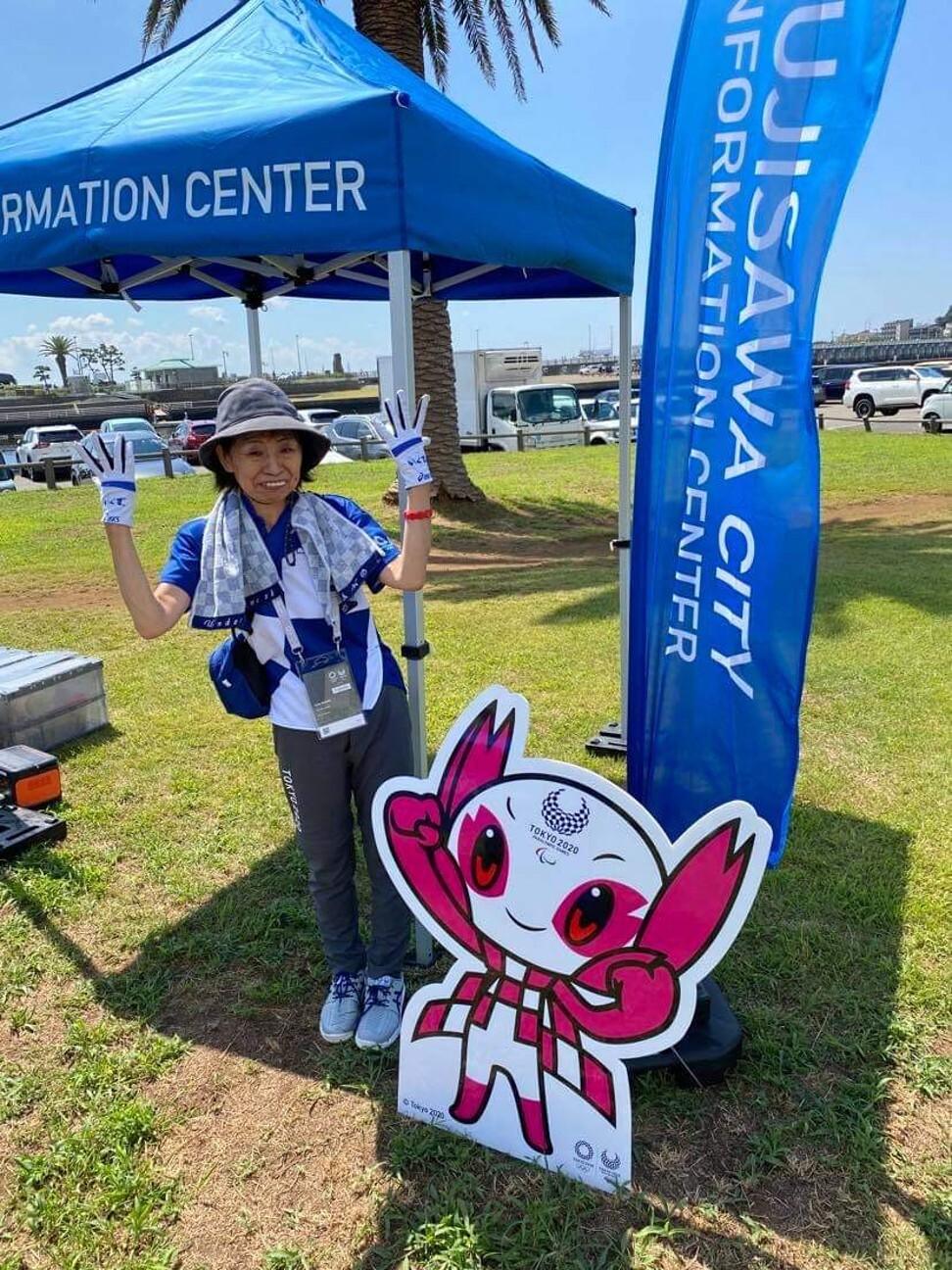
For those who stayed the course, despite the unusually large drop out rate, there is barely enough genuine volunteering work left to go around. Organisers have said they did not cut the number of volunteers because they did not want to disappoint, so there are more spare hands than tasks to assign. As a consequence, many volunteers find themselves acting as stand-in spectators or taking on new, unexpected roles.
Nagano, an active member of Fujisawa city’s sailing club, is among them. Rather than show tourists around she has been watering the plants at Fujisawa station and has made videos of herself dressed in her blue-and-white uniform to cheer the athletes online. On Sunday, she acted more like a spectator, waving flags at passing athletes.
Olympics: for foreigners covering the Games, Japan’s ‘konbini’ are love at first bite
Others have quit altogether. Michels, 26, who had been willing to travel the 350km to Tokyo from her place of work in Yokkaichi, southern Japan, gave up when it became clear she could not be fully vaccinated in time. Parker, a mother to a toddler, was put off by a combination of safety fears and chaotic scheduling that ignored her requests.
“I was willing to spend money on travelling to Tokyo, and on accommodation and private childcare, and to cover my loss of earnings for those days. But the risk of being infected was high, with vaccinations for volunteers being announced just days before the Games began,” said Parker.
The 48-year-old would have needed to travel more than 400km from Toyama on Japan’s eastern coast to take part and was concerned about bringing the virus back to her small community.
Making matters worse was that her shift schedule, spread across three weeks, did not take into account her childcare situation. She said the organisers probably did not expect women with small children to volunteer. “Perhaps they expected women to figure out ways to deal with it somehow, as women often do,” she said.
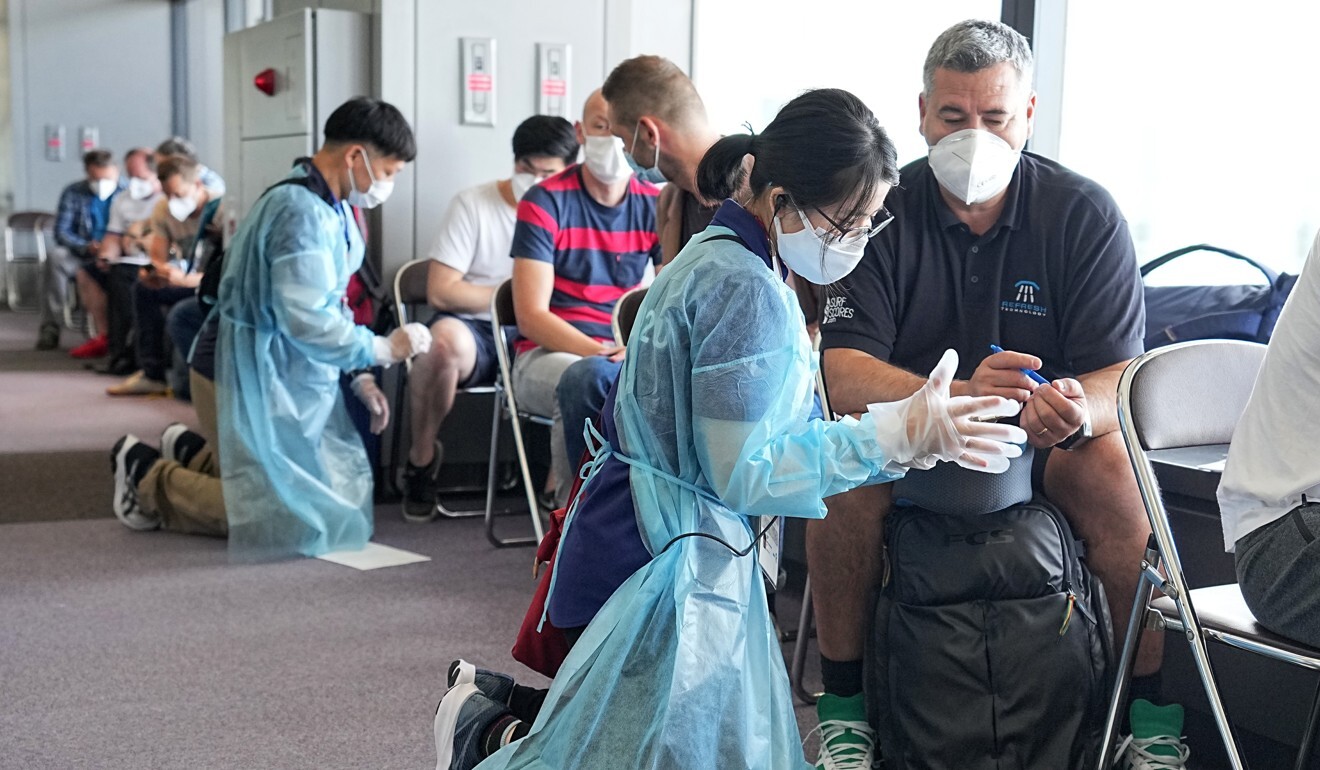
Safety concerns
Parker was far from alone in her safety concerns. The announcement that volunteers who would be working closely with athletes and the Japan Olympic Committee (JOC) were eligible for vaccinations did not come until early July. That meant second doses, given the standard four-week gap, would not be administered until early August – after the Games’ opening date of July 23.
The feeling that volunteer safety was an afterthought was the final straw for many previously enthusiastic souls, Michels among them.
“At one point, we received an email that the JOC would not be responsible if we were infected with Covid-19. This was in response to a question by one of the volunteers, during one of the online training sessions,” Michels recalled.
“It was also frustrating that they would not supply us with enough masks; they expected us to travel to Tokyo to collect the uniforms, which meant I would risk exposing my small community in Yokkaichi if I got infected.”
China’s anger over ‘ugly’ Olympics coverage misses the picture
For many volunteers the safety concerns were made worse by what they described as haphazard organisation and erratic communication.
Michels, for instance, had received an email telling her she had been made a team leader at one of the venues, but it gave precious little guidance on what the role even entailed.
“The only detail was, ‘ensure that your team is drinking water’,” Michels recalled. “I was supposed to have been in direct contact with anyone coming in to see the Games but with no spectators, who would I be helping? I was supposed to be a team leader and helping anyone who was confused, but I was confused myself until days before the Games, when I finally decided to drop out.”
Even the process of quitting was itself confusing for some volunteers.
When Parker logged online to confirm she would no longer take part she was asked to choose a reason for her decision from a drop-down list. Yet indicating the true reason was not possible.
“The pandemic was not listed as an option, and there was no space for a free response. Perhaps they are deliberately not collecting this data,” she said.
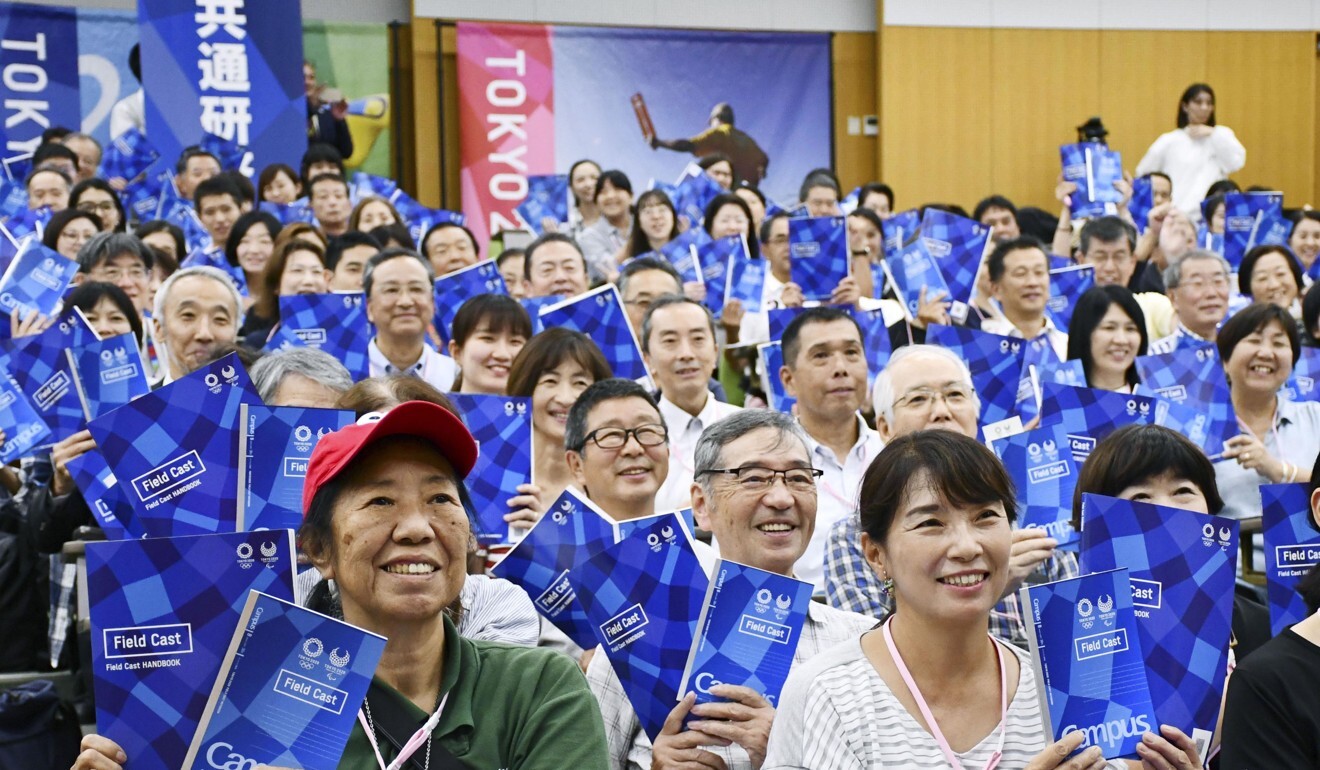
Lingering fears
For those who have stuck with the Games, problems linger.
Anna, a foreigner who has lived in Japan for the past decade and who asked for her identity to be withheld, said she had volunteered as she thought putting to use her multilingual skills was a good way to pay her dues to her host country.
But she started to question her decision after her vaccination appointment was cancelled at the last minute. She was also dismayed when, after going to the trouble of requesting leave from work, she arrived for her designated volunteer shift only to find that there was no task assigned to her.
This was despite her expectation – on the advice of the organisers – that she would be required to work full eight-hour shifts, starting from as early as 8am and finishing as late as 11pm. She said an app that was supposed to help schedule the shifts – which she and her fellow volunteers had been trained on “months ago” – was still not working and that this had left team leaders as stressed as the volunteers they were leading.
She said she was still considering whether to drop out, but was grateful that her task had not been reassigned, unlike many others.
“I am glad I am not out on the street under the hot sun, holding a placard that reads, ‘beware of heatstroke’ – something that I saw an older man being assigned to do,” she said.
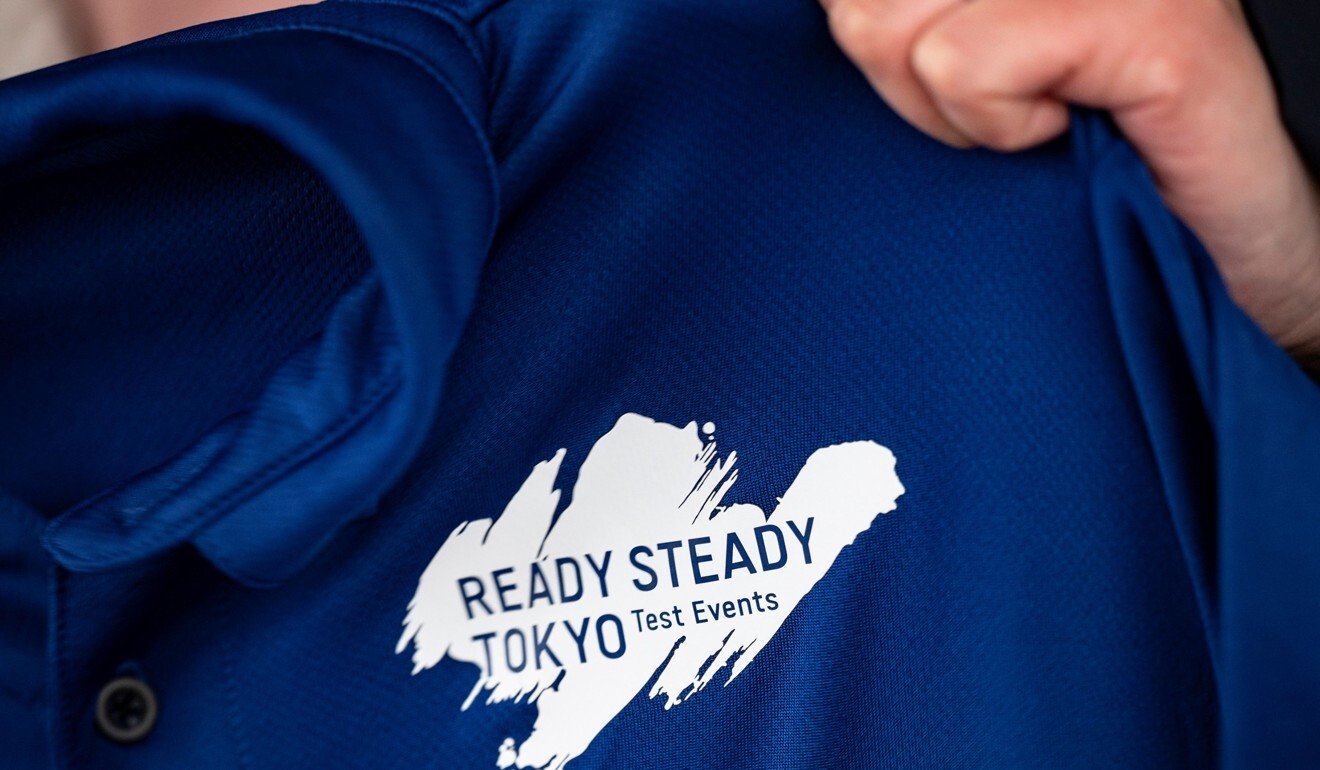
On the bright side
Still, many volunteers have taken the challenges in their stride, remaining happy to play a role – even a slightly smaller one than expected – in making Japanese sporting history.
Steve Klein, 64, is among those looking on the bright side.
“Everyone is doing the best they can to minimise the risks. The Olympic Games are about accepting differences and creating equalities. It is not perfect, but that’s what it is aimed at – bringing people together,” said Klein.
Klein, who lives in Japan, received his first vaccination in his native United States earlier this year and his second dose upon returning to Japan.
He has been assigned to managing the resting area for the hockey teams, a space he described as not crowded and well-ventilated. However, he understood the concerns of those who had dropped out.
“Obviously, I would’ve had a very different perspective had I not been fully vaccinated. And I am glad that everyone I have interacted with so far has been vaccinated too,” said the retired logistician.
Ayako Ueda, 48, is another who is keen to play her part in history.
“I don’t think the Olympics will be held in Japan ever again in my lifetime,” said the communications consultant. “I have been educated overseas, have many international friends and see myself as a global citizen, so for me to be able to be part of a global event like the Olympics [is wonderful].”
However, she conceded that she too might feel differently had she not been vaccinated, pointing out that many athletes had not been vaccinated and that there had been several cases of Covid-19 among competitors.
Had she not been jabbed, “I am not sure if I could continue being a volunteer, since my role requires me to work closely with athletes, and I have to travel by public transport to get to the Ariake Tennis Park, where I am deployed.”
Ueda said it was a “nice gesture” by the organising committee not to cut the number of volunteers, even if it meant some found themselves with little to do as “being assigned as spectators, at least they can view some of the Games”.
Ueda said that despite the issues the Games would have a positive legacy.
“When I was visiting the UK, I heard that people in London had initially opposed hosting the [2012] Games but later they warmed up to it and even cheered for it.
“It is something that if you are part of it, either as a spectator or a volunteer, or if a venue is near your home, then it is an experience one can enjoy. It is a shame that the government decided against spectators; many have lost this opportunity to be part of the Games. But I feel Japanese people are now warming up to the Games, by watching it on TV.”

